When a satellite is held in orbit, what is it orbiting relative to? What's so special about the orbit of geosynchronous satellites?
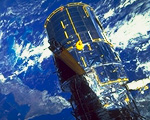
Well, you're on to something, Elliott. The Space Satellite Handbook defines a satellite as a small body orbiting a bigger body. So when a satellite is held in orbit, it is orbiting relative to a bigger body. An example is the Moon. Our Moon orbits the Earth. It is smaller than the Earth. So, the Moon would be an example of a satellite that orbits the Earth (the bigger body).
Geosynchronous satellites are man-made satellites that orbit the Earth. They always orbit the Earth at the same altitude (35,785 kilometers). But that's not all that is special about these satellites. These satellites revolve around the Earth at the same speed at which the Earth rotates, or geosynchronous satellites complete one orbit in exactly one day. So a satellite in geosynchronous orbit appears to hover over a single location on Earth.
Scientists can use geosynchronous satellites to map the weather that happens everyday in a region on Earth. These satellites are good at that because they always look at one place on the Earth's surface.
Submitted by Elliott (England)
(September 30, 1997)
You might also be interested in:
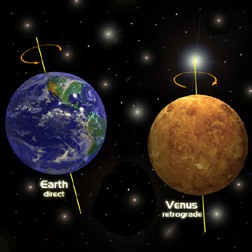
It depends on which type of motion you are asking about. If you take a birds-eye view from the top of the solar system all the planets orbit around the Sun in a counter-clockwise (or direct) direction.
...more
Almost everyone has a question or two about living in space. What do astronauts do in space? How do they do everyday things like eat, sleep and go to the bathroom? It's important to note that astronauts
...more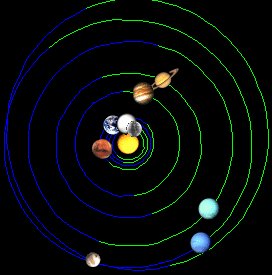
There is a really neat internet program called Solar System Live that shows the position of all of the planets and the Sun for any given day. If you go to that page, you'll see an image similar to the
...more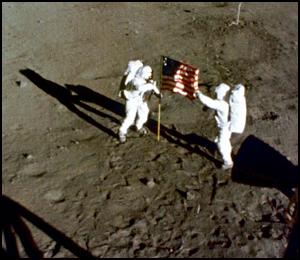
The picture of the American Flag (the one put there by the Apollo astronauts) is waving (or straight out) in the wind. How could that be possible if there is no atmosphere on the Moon? Was it some sort
...more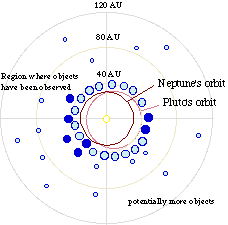
I was wondering if there is a new planet? Are there planets (a tenth planet?) after Pluto belonging to our solar system? What are the names of the new planets discovered in the solar system? Are there
...more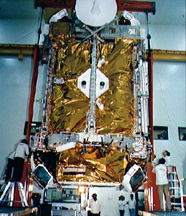
If that is so, the energy released during the Big Bang must have created many such black holes. Therefore most of the Energy of the Big bang must have disappeared in that form. Then how did the Universe
...more













